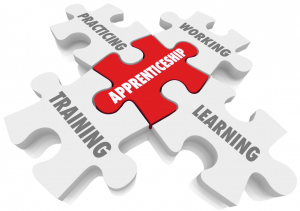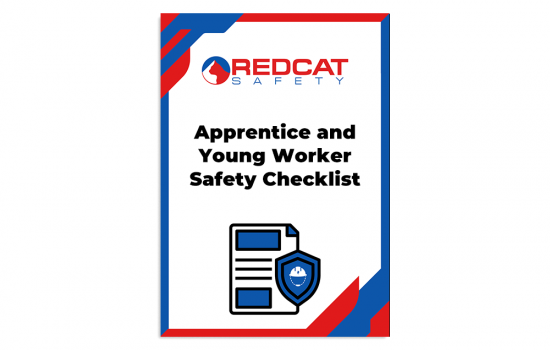About this Apprentice and Young Worker Safety Checklist
This apprentice and young worker safety checklist can be used to assist you verify if the hazards and risks related to young workers are adequately managed.
All workers who are new to the job are at particular risk of injury, with apprentices, young and new people often being involved in an incident.
All businesses need to comply with legislative requirements for the safety training of apprentices, trainees, young and new workers. Training should be related to the competency level of that person and the risk of their work activities.
It is management’s role to ensure that the training of apprentices, young and new workers is adequate and that supervision is provided to advance their knowledge and follow all legal safety requirements,
What Needs to be Considered with Apprentices and Young Workers?
Apprentices and young workers are at a higher risk for injury on the job. Below are some tips and checks to help keep them safe.

Initial Assessment
- Has someone been appointed to be in overall charge to educate young workers and apprentices?
- Have work tasks for apprentices, young and/or new workers been properly defined and explained?
- Has the size of the person and their level of physical maturity been assessed for the designated work?
- Has their general behavior and psychological maturity been assessed for the designated work?
- Has their work experience and training for the designated work been assessed?
- Has their ability to make mature judgments about their safety and that of others been assessed?
- Has their ability to cope with unexpected, stressful situations been assessed for the designated work to prevent young worker injury?
- Have the necessary steps been taken to isolate or make safe dangerous tools, mobile plant, equipment or substances?
Orientation and Familiarization
- Has the apprentice, young and/or new worker completed an orientation to the workplace?
Information, Instruction and Training
- Has information, instruction and training been provided on the actual job the person will be undertaking?
- Has information been given on preventing work-related injuries, general injuries and illnesses.
- Has information been given on work safe, staying safe, talking safety as applicable to the worker’s ages?
- Has the apprentice, young and/or new worker’s understanding been assessed before commencing the task?
- Is the apprentice, young and/or new worker provided with opportunities to ask questions?
- Is there a buddy system in place for apprentices, young and/or new workers?
- Have apprentices, young and/or new workers been made aware of anti-harassment, anti-bullying and anti-violence policies?
- Have work activities that apprentices, young and/or new workers be prohibited from undertaking been clearly identified to enable young employee safety?
Supervision and Safety Instructions for Young Worker Safety
- Are supervisors aware of job requirements including the risks to apprentices, young and/or new workers?
- Are managers and supervisors aware of apprentice, young and/or new workers’ vulnerabilities?
- Are managers and supervisors ensuring apprentice, young and/or new workers are working in accordance with safety instructions?
- Are supervisors available to answer questions?
- Are work practices of apprentice, young and/or new workers closely monitored?
- Are any unsafe work practices corrected immediately?
Consultation and Communication
- Are apprentice, young and/or new workers involved in hazard identification, risk assessment and control of hazards at the workplace?
- Do apprentices, young and/or new workers know how to report injuries and hazards?
- Do apprentices, young and/or new workers know who their first aid person and emergency personnel are?
There are several reasons why young workers are more at risk for workplace injuries. For one, they may be less experienced and not yet fully aware of all the potential hazards on the job. They may also be less likely to speak up if they see something unsafe happening. The checks listed above should help you keep younger workers safer from harm.
Why Become a Member of Redcat Safety and Download this Apprentice and Young Worker Safety Checklist?
- This checklist can be used to assist you verify if the hazards and risks related to apprentices and young workers are adequately managed to ensure their safety and health.
- The checklist can help organizations ensure that their new employees are adequately protected from potential risks.
After downloading this apprentice and young worker safety checklist you will be able to:
- Very easily edit and customize the template to create your own apprentice and young worker safety checklist.
- Apply your own style, format and brand to the checklist.
- Use it in any industry or sector regardless of size or type of organization.
Availability and Use of this Apprentice and Young Worker Safety Checklist
- This checklist is accessible to you right now by clicking the ‘Become a Member Now’ button.
- The checklist will be delivered to you in fully editable Microsoft Word format for immediate and full use in your business.
- There are no membership auto-renewals, contracts or ongoing costs.

If you can find HSEQ resources that are of better value than what your Redcat Safety Membership offers, we will REFUND YOU double the cost of your membership.

